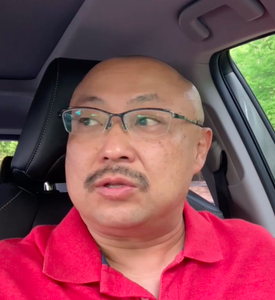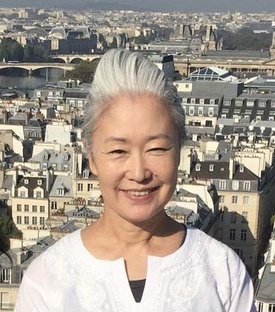"If we don't revise it, our descendants will suffer."
If one or both parents are Japanese, and a child is born overseas, the child can acquire Japanese nationality if the birth notification is submitted to the local embassy within the deadline. Also, if the child is born in a country that practices jus soli, such as the United States, the child can also acquire American nationality, making it a dual nationality. However, the overseas embassy's website states that the child must choose one of the two nationalities by the time they turn 22 (Source: " Acceptance of various notifications by the Consulate-General of Japan in Seattle " As of 2022, Japan only allows its citizens to have a single nationality.)
On the other hand, if you are not born with dual nationality and have acquired American citizenship of your own volition, the website of the Japanese Embassy or Consulate-General states that "at that point you will be considered to have lost your Japanese nationality, and you must submit a Notification of Loss of Japanese Nationality to the Japanese Embassy or Consulate General."
However, in Japan, a lawsuit is currently underway against the plaintiffs who are suing the government, claiming that the Nationality Law, which stipulates that if you acquire a foreign nationality, you lose your Japanese nationality, is unconstitutional. We spoke to Hiroaki Takamatsu, who lives in the United States, and Chiyomi Pilley, who lives in France, about their thoughts on Japan, which does not recognize multiple nationalities.

Takamatsu, who works for an IT company in Washington state, obtained citizenship in 2015 in order to bring his wife, who was living in Japan, to the United States. "If I kept my permanent resident status, it would take eight years, or even more, for my wife to obtain permanent resident status," he said. Takamatsu, who continues to send messages to the people of Japan through YouTube and his blog, argues that a progressive change to the nationality law is necessary not just for personal reasons, but for the future of Japan.
"Even when there is a lot of excitement in Japan about a Japanese person winning a Nobel Prize, in fact many of these people are no longer Japanese, but formerly Japanese. When researchers go abroad in search of better opportunities and environments and acquire the citizenship of the country, under Japanese Nationality Law they lose their Japanese nationality."
Takamatsu says the problems lie in a lack of coordination between Japan's Ministries of Justice, Internal Affairs and Communications, and Foreign Affairs, as well as the fact that Japanese nationals living abroad are far too ignorant about Japan's nationality law.
"There was a Japanese mother living in the United States who forgot to submit a birth notification to the consulate general within three months of the baby's birth. I think they have a very low sense of responsibility."
Takamatsu explains that the background to Japan's single nationality system is that it has had a series of wars with other countries since the Meiji era, and that it was possible to predict a situation in which Japanese immigrants would become enemies after sending immigrants to the American continent. He also emphasizes that, as mentioned above, each ministry should not impose laws and regulations separately, but rather all rules should be organized and explained in an easy-to-understand manner.
"The unconstitutional lawsuit currently being conducted in Japan is also likely to take a long time. I think it will be difficult for the Nationality Law to be recognized as unconstitutional and improved during my lifetime. However, the ideal would be to put Japan on par with other developed countries (that allow multiple nationalities), and unless the law is changed, it is clear that our descendants will suffer, as we will not be able to leave Japan to work or live overseas or return to Japan with what we have gained abroad."
"The dysfunctional nationality choice law"
The next person we spoke to was Chiyomi Pilley, who has lived in France for over 40 years. Chiyomi, who opposes Japan's single nationality law and is involved in a petition campaign to amend it, retains her Japanese nationality and lives in France on a status equivalent to a US green card. "Due to my job (working for an airline), I've been fortunate enough to not have had to obtain French nationality," she said. It was the words of her daughter, who was born in France, that inspired her to take up her current activism.
Children born in France, where jus sanguinis is the rule, can have dual Japanese and French nationality if they submit a birth notification to a Japanese diplomatic mission within three months of birth. This also applies to children born into international marriages, like Chiyomi's daughter. However, as mentioned above, dual nationals like them are subject to the nationality selection system (choosing one nationality) under Japan's Nationality Act. When I explained this and the Japanese nationality selection system to my daughter, she said, "So in Japan, it's not okay to be half-Japanese."
"I myself was shocked when I found out that the nationality granted at birth is limited. However, even though it is called a nationality selection system, it is said that as many as 90% of people do not make a choice, so it is true that it is not functioning at all. At the same time, it is also true that (the choice of nationality) is clearly stated in the Nationality Act."
It was back in 2003 that Chiyomi began collecting signatures for revision of the Nationality Law. When asked if there had been any progress since then, she replied, "I think there has been progress. I continued to make efforts to approach Japanese lawmakers, and now they are aware that people have to choose their nationality. The problem is that the Ministry of Justice has not properly informed the parties involved (Japanese nationals living overseas) about the Nationality Law. I have been participating in the Japanese Overseas Convention for about 10 years, and I feel that knowledge about Japan's Nationality Law is not well conveyed to Japanese people (Japanese Americans) living in the United States, especially, perhaps because the United States has a nationality law that allows dual nationality."
When asked what her ultimate goal was, Chiyomi immediately replied, "Revision of the Nationality Law."
"Anyway, I would like the law to be changed, which allows people who currently have Japanese nationality to lose their Japanese nationality against their will, or to choose to renounce it. Apart from that, it pains me whenever I hear about people who acted without fully understanding the current nationality law, and ended up in difficult situations later on."
Through my interviews, I, who have lived in the U.S. for 30 years, realized how ignorant I am about citizenship law. I would like to continue to dig deeper into this topic by interviewing people in various situations.
© 2022 Keiko Fukuda






